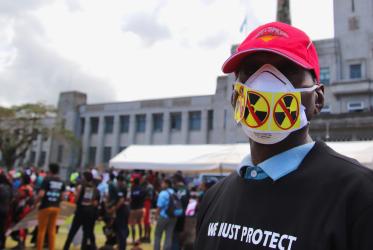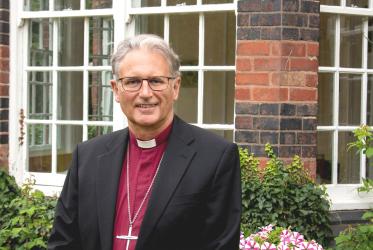Displaying 1 - 17 of 17
World Council of Churches plans pilgrimage to Marshall Islands
09 November 2023
Pacific churches call for Japan to halt wastewater dump
29 August 2023
Nuclear weapons threat, climate change linked in many ways
17 August 2021
“Coventry Cathedral continues to speak a word of hope to the world”
10 December 2020
Churches should use their voice on climate change
26 February 2020
Emily Welty: tide of hope for a world free from nuclear weapons
19 September 2017
Momentum builds for ban on nuclear weapons
16 December 2014











